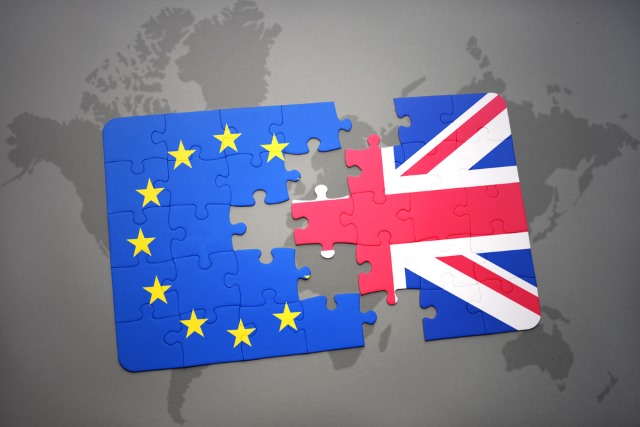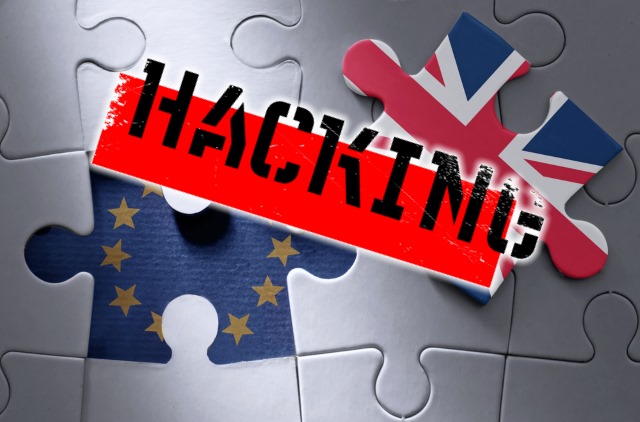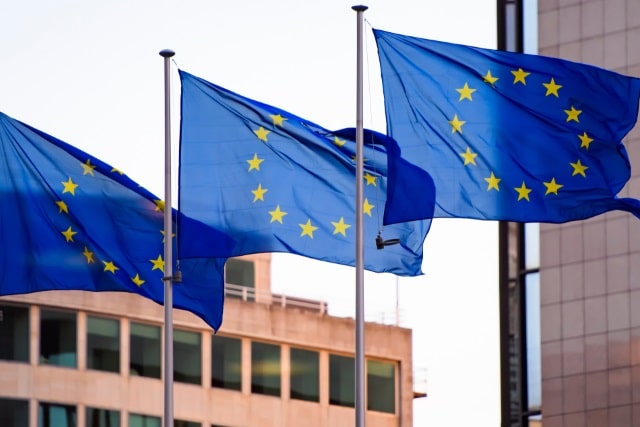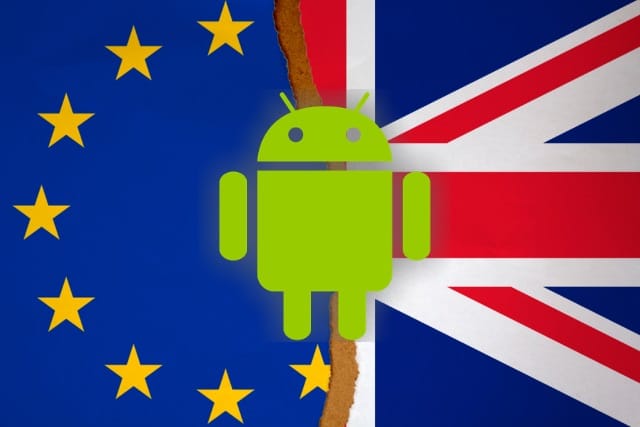
Implementing international regulations from a tech perspective: Lessons from the Union Customs Code and Brexit
The issue of border management is a hot topic that has gathered urgency due to the combined impact of the pandemic, trade and travel sanctions related to Russia, with regards to the Ukraine conflict and global supply chain disruption. Borders play a critical role in managing security, public health and safety, and commerce between nations.
The issue is highly political, as evidenced during Brexit negotiations, when one of the major sticking points -- still a contentious issue today -- was around implementing the necessary customs regulations between Northern Ireland and Ireland in the absence of a hard border between the countries. A common theme among government communications at the time was that a "technological solution" would be capable of tracking goods and ensuring the correct declarations and authorizations were made, without requiring physical checks.

APIs can help to solve Brexit data issues
New research from MuleSoft shows 54 percent of UK businesses say Brexit has presented them with data access and management challenges.
The problem isn't just a British one though. 40 percent of German and 39 percent of French businesses also report that Brexit has made it more difficult for them to access and manage data.

UK unveils post-Brexit data plans to boost digital trade and end annoying cookie confirmation pop-ups
In the first signs of UK data policy starting to diverge from the EU, the government has today announced a package of measures to help it seize the opportunities of data to boost growth, trade and improve public services.
Plans include 'data adequacy' partnerships with 10 countries including the US, Australia and Republic of Korea, and the appointment of a new Information Commissioner to oversee the changes.

Six months on from Brexit, how has it affected the IT industry?
It's now been five years since the United Kingdom voted in a referendum to leave the European Union, and six months since it actually left.
With the promise of freedom to 'take back control' of the UK's borders, potential new opportunities for Britons and a plan to make the UK a global leader in innovation, there's still a lot up in the air. What has been apparent, however, is that almost all aspects of businesses have been impacted by Brexit in some way or other, from supply chain complications, to staff shortages, to confusion around GDPR and data protection rules.

How security teams can manage data protection post Brexit
EU and UK data-driven businesses no doubt breathed a sigh of relief with the EU recently approving the continued flow of data between the EU and UK.
But the news is just one hurdle as Cyber Security Officers (CSOs) and information security teams both in mainland Europe and the UK consider challenges that lie ahead and prepare to flex as necessary in a new era in data management. Now more than ever, it is the security leaders that work collaboratively with legal and data counterparts who will conquer.

Brexit pushes Google to move UK user data away from Europe to the US
Google has confirmed that it plans to move data pertaining to its UK users out of Europe, and will instead store user accounts in the US.
The move comes as a result of the UK's departure from the European Union, and it is a side effect of Brexit that few would have predicted. Reuters reports that Google will be placing UK user accounts under US jurisdiction, adding that it "will leave the sensitive personal information of tens of millions with less protection and within easier reach of British law enforcement".

Will Brexit cause UK tech ambitions to decline?
Throughout the 2010s, the UK has faced a thick fog of uncertainty. The decade has seen four general elections take place, as well as the momentous 2016 EU Referendum; such events have caused even the most experienced business leaders to feel less than confident.
However, the results of the December 2019 general election suggest that stability could be on the horizon. Regardless of one’s political leanings, many will view the Conservative Party’s overwhelming majority as a welcome break in Westminster’s political deadlock. Indeed, we are already seeing breaks in the deadlock, with the Brexit Bill finally being passed through the House of Commons on 9th January 2020. Whilst we now wait for the bill to be passed by the House of Lords, the fact it swiftly made its way through the Commons has already increased the likelihood of the UK leaving the EU by January 31st 2020. Such activities have enabled businesses to plan future activities with greater confidence. However, despite greater certainty, one industry in particular remains concerned about the impact of Brexit on its future growth; the tech industry. So, it is vital that we get to the bottom of its concerns.

No-deal Brexit: Tips for migrating data to preserve the free flow of business
With Brexit looming large, the only thing that is certain is the uncertainty of Brexit’s impact. A no-deal Brexit conjures visions of trucks and ships backed up at border crossings and ports of entry, slowing commerce to a snail’s pace. But the real business impact of a no-deal Brexit is in the free flow of data between the EU and the U.K., and many small and mid-sized businesses are likely unprepared. It is estimated that 80 percent of Britain’s economy is founded on services, not goods. Between 2005 and 2015, the volume of data entering and leaving the U.K. increased 28 times, and 75 percent of this data was exchanged with EU countries.
In a no-deal Brexit, the U.K. will become a "third country," no longer part of the General Data Protection Regulation (GDPR). Consequently, according to the U.K.’s Information Commissioner’s Office, data from EU countries will likely no longer be able to flow freely into the U.K. without a contract in place between the sender and U.K.-based SMBs that meets EU-approved terms. For those unprepared, the fallout from this could be disastrous. U.K. businesses that manage or store large volumes of data within the EU, such as those in the financial or tech industries, may look to relocate their operations to minimize the risks and impacts for their business. In moving their operations, businesses will need to transfer large volumes of data.

UK tech startups confident of growth in spite of Brexit worries
A new survey of 100 business leaders in early stage, UK-based technology companies finds that 73 percent are confident or very confident they will increase their turnover in the coming 12 months.
Although this is seven percent down on the previous quarter, 79 percent say they intend to hire more staff (up six percent) and 66 percent hope to raise investment (up seven percent) according to the latest Tech Tracker report from Studio Graphene.

GDPR and Brexit -- Is your cloud provider ready for the UK 'being treated like a third country'?
The UK government has always maintained that following Brexit, the European Union’s General Data Protection Regulation (GDPR) will be absorbed into UK law. This means that there will be no material changes to the data protection rules that organizations in the UK will need to follow.
However, the French data protection regulator has recently said that in the event of a no-deal Brexit and absence of an adequacy decision, it will treat the UK like any other country that is outside the European Economic Area. In other words, it will treat the UK as a "third country." It’s likely that other EU country regulators will take this approach too -- and such decisions have legal implications for organizations.

European Commission rules that UK dwelling EU citizens can still hold .eu domains after Brexit
What Brexit really means for the UK -- whenever it may end up happening -- still remains to be seen. But a new ruling by the European Commission means that even after leaving Europe, UK citizens will still be able to hold .eu top-level domains after leaving the European Union.
The ruling is a reversal of a decision taken earlier in the year that EU citizens living in the UK post-Brexit would not be able to own such domains. It comes as the Commission becomes increasingly concerned about the "uncertainties surrounding the ratification of the Withdrawal Agreement", and what the implications of this could be.

Brexit: criticism mounts against Android-only app to apply for settled status
A number of British and European politicians have written to the UK home secretary, Sajid Javid, to complain about the government's EU Exit mobile app.
The app was created to enable EU citizens to apply for "settled status" in the UK in the wake of the referendum vote that saw the start of the Brexit process. The government stands accused of "digital discrimination" because the app is only available for Android devices -- and only relatively modern ones at that. iPhone users have been left out in the cold, as have those with older Android phones, adding to the stress and concern that already surrounds Brexit.

IT leaders struggle to deliver cost transparency
A new survey by London-based Coeus Consulting reveals that 88 percent of respondents are unable to demonstrate cost transparency to the rest of the organization.
Those that can, however, are best positioned to deliver business agility for digital transformation and are more likely to be represented at senior level in their companies.

70 percent of European IT decision makers see Brexit as a business opportunity
Britain's decision to leave the European Union has sparked mixed emotions in the business world, but a new survey of over 800 IT decision-makers across Europe reveals that most see Brexit as an opportunity.
In the survey of over 800 European IT decision-makers by cloud and network provider Interoute, 70 percent overall believe that Britain leaving the EU is an opportunity for their company. Business confidence surrounding Britain leaving the EU was highest in France (83 percent) and Belgium (78 percent) but lowest in Sweden (49 percent).

Brexit impact on UK jobs market may be overestimated
New reports are arguing that Brexit may not have such a major effect on the UK's tech sector as previously imagined.
Research released by Tech City UK and Nesta claim that foreign workers are more likely to have come from outside the EU, meaning that losing EU-based workforce may not be as "dangerous" for businesses as previously thought.
